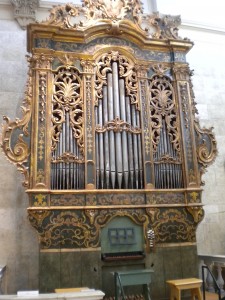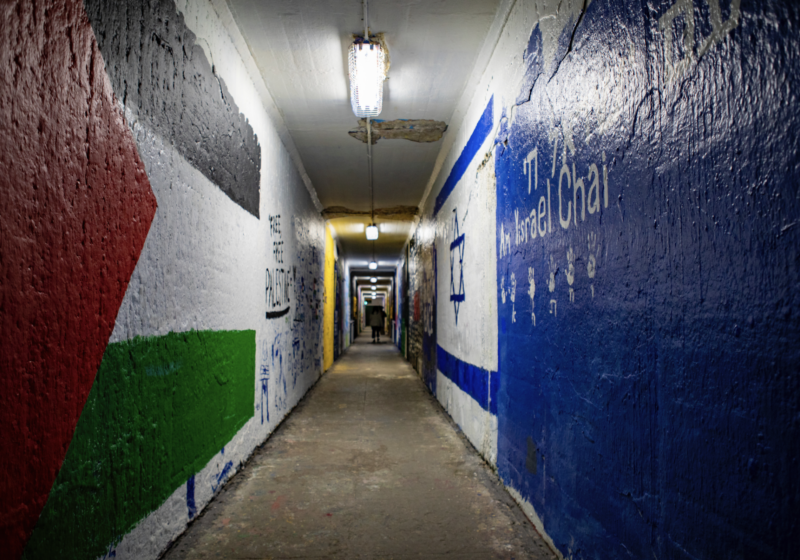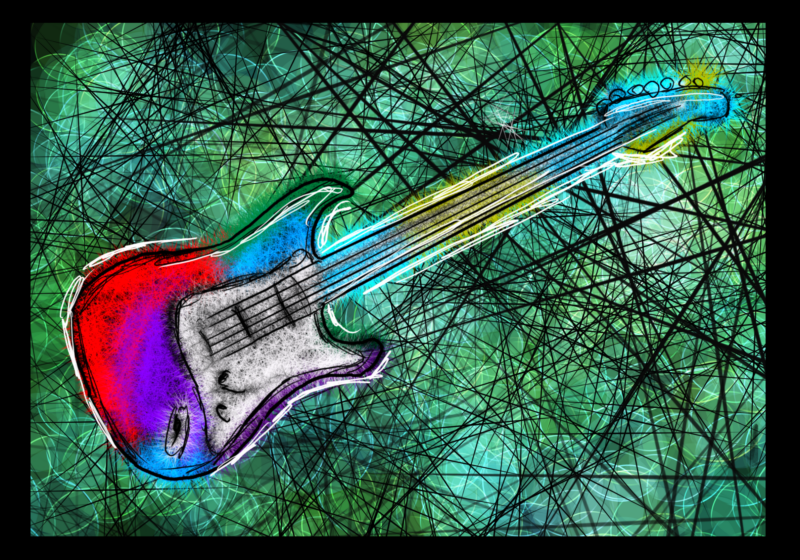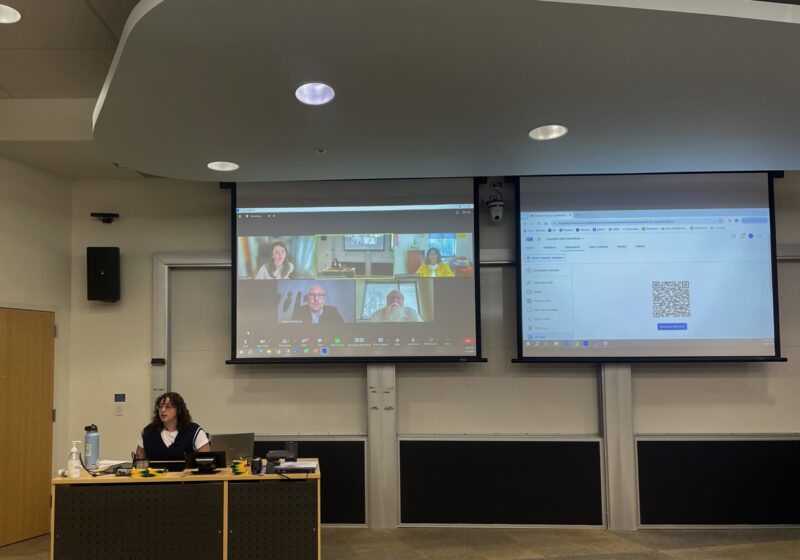Johann Sebastian Bach is known as one of the greatest musicians and composers of all time. His work has been heard all over the world on many different instruments, but he is especially well-known for his organ music. Much of that music was brought to life last weekend in downtown Rochester.
From Thursday, Sept. 27 to Sunday, Sept. 30, the Eastman Rochester Organ Initiative (EROI) hosted a music festival dedicated to Bach and all his contributions to the instrument. It brought over 200 participants throughout the country to Rochester in the name of Bach and his music. The festival included major performances of Bach’s great works and scholarly presentations debating various aspects of his music and interpretations of his major organ works, to great success.
EROI is a project created by Organ Professor at the Eastman School of Music, Hans Davidsson. He, along with fellow Organ Professor David Higgs, started the project with a simple goal in mind: to keep organ music alive in Rochester. Eastman collaborated with the city of Rochester to focus on creating and maintaining a diverse group of organs in the city. The project helps fund large organ restoration projects on various organs in Rochester including the Italian Baroque Organ at the Memorial Art Gallery.
The other goal of the project, according to Brian Holten, a second year Doctor of Musial Arts (DMA) student in Organ Performance at Eastman, is to “keep the energy in the community around organ music and organ playing.”
This goal is being accomplished with free community organ concerts, which EROI now hosts throughout the year. These performances feature many Eastman organists at venues all over the city. Donations collected at the concerts help pay for trips abroad for Eastman students so that they are able to listen to and perform on some of the greatest organs in the world. Funding is provided by a variety of sources, including corporate sponsors, non-profit groups and individual donors from the community.
This weekend’s “Bach and the Organ” festival was a huge success; festival registration was sold out several weeks ago, and most (if not all) of the concerts open to the public were also sold out, sometimes before the doors even opened.
The festival kicked off on Sept. 27, with three thesis presentations by Eastman organ students relating to Bach and the organ. The students presented their papers and received feedback from an elite panel of respondents, which included Bach scholars and professors from the top music schools across the country.
The concerts began on Thursday night at Christ Church on East Avenue and featured a number of Eastman organ professors. All varieties of Bach music and composers similar to Bach were performed throughout the entire weekend. Many of the pieces performed are not the most common Bach pieces that we have all heard before, which made the performance all the more intriguing.
“There seemed to be a deliberate effort by the people organizing the festival to include pieces by Bach that aren’t heard nearly as often. But certainly there were some old favorites included,” Holten said.
Friday night’s concert at Christ Church was absolutely wonderful. The organ was used not only for solo pieces, but also as an accompaniment to other instruments and singers. This showed a different side to the musical tool, a side not usually experienced by audience members. The organ accompanied the Boston Early Music Ensemble and members of Eastman Collegium Musicum group. These two exceptionally talented groups performed primarily on instruments from the Baroque period of music dating between 1600 and 1750. It was fascinating to hear the music performed as Bach would have heard it in his day.
The singers in Friday’s performance demonstrated their talents and experience in early music with incredible grace and elegance. They were truly the highlight of the evening.
Because it was a festival dedicated to the organ, an exciting organ concerto was also played on one of Christ Church’s exceptional organs. This breathtaking instrument displayed its exceptionally rich and full sound with the complex concerto.
“It’s a very fresh and alive sound with a lot of spirit behind it,” Holten said regarding the sound of this organ compared to others he has played. “It’s really a simple machine, but the sound it makes it incredibly complex and interesting. We never get tired of hearing it.”
Other concerts this weekend featured exceptional organs in Rochester, including the Italian Baroque organ at the Memorial Art Gallery. Found several years ago tucked away in storage and beautifully restored to its original glory, it sounded very different compared with other organs in the festival. Holten described it as “a much more delicate and nimble kind of sound.”
The contrast among the organs in the Rochester community is so impressive even non-musicians can appreciate it. Audience members, regardless of musical skill level, are sure to be blown away by the beauty and power of all of these instruments, and that alone is worth celebrating. There are already plans being made for the festival next fall — and based on this years performance, it will surely be exceptional. The turn out for this years festival shows that organ music is alive and well in Rochester and, with the help of EROI, will be for many years to come.
Sanguinetti is a member of the class of 2014.







